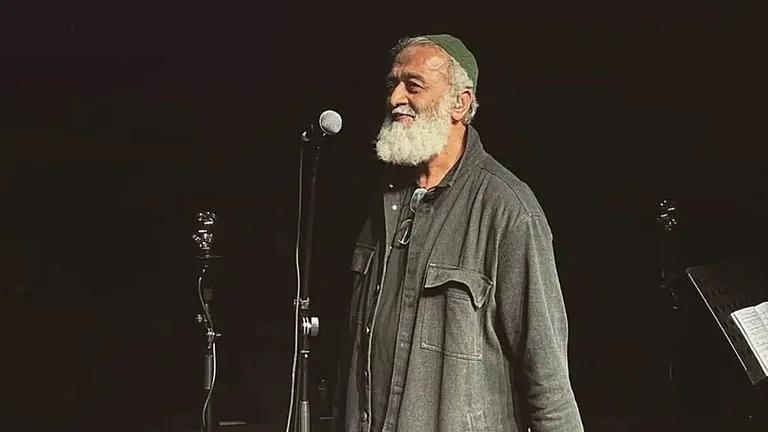Haunting memories of condescending, emasculating white bosses, the flagitious caste system, procrustean zamindars, all worked to solidify a strong psyche of helplessness during this turmoil. Today, okay, we haven't "come a long way, baby," but we've come some of the way. Compared to then, you could say, a long way.
Today's public is baffled by Devdas' limp, wishy-washy character. Why couldn't he just go get the girl, even as villagers, often risking their lives, are doing? In today's climate, where you can sue the boss for firing you, a union can hold up a corporation, send an employer to jail for hitting a domestic, with all castes beginning to hit the power politics handle and considered a serious votebank, it's tough to swallow a guy, who should be in Alcoholics Anonymous, as even an anti-hero.
There is a saying in Hollywood, "Never act with animals and children. They steal every scene." Well, Bollywood should coin, "Never act with the women of Devdas. They steal the film." Prakash Ranjit Kapadia's screenplay and dialogue of Devdas (2002) makes it, in today's parlance, a chick film. After Devdas (1955), hardly anyone ever talked about Suchitra Sen who played Paro or Vyjanthimala as Chandramukhi. For good reason, and not only because they look like sulking, garbanzo bags. Their dialogue is limited to providing cues to Devdas, with their glycerine drippy eyes constantly downcast and suffering. In fact, every female role in Devdas (1955) is that of an all-giving, undemanding, obedient slave. Then, come the Devdas (2002) women. Yes, these are women we might be able to relate to.
Kiron Kher, as Sumitra Kaki, Paro's mother, stuns you from the start, as she ranges from light-as-a-hand-held-fan to an angry, vengeful mother. When Devdas' mother Kaushalya reminds Sumitra of her "neech kul" and says, "Zamindar machhi khaate hain, par kaante galey mein nahin phasne dete. Tumhara roop badal gaya hoga par khoon to vahi hai." Then Kumud (stereotypical, overacting sister-in-law) says, "Rahi baat Parvati ki. Agar na samajh aaye usko javani to ek raat bhej dena usko devarji ke paas. Zamindaron ko aisi baaton ka kalank nahin lagta." For this Kumud gets a whangy slap from Sumitra. She then fixes the zamindars (thakurains), and says, "Haan, mat do, hum hain beti bechne vaale, par dhanda to tum bhi karti ho. Hum to paise le kar saamne se beti dete hain, tum to dahej bhi leti ho, aur beti bhi." Way to go, Kiron!
While Bimal Roy exposes the cruelty of the zamindars and their social mores, Bhansali explores the insidious suppression of women and how they deal with it on uneasy terms with their own individualities. Whereas Roy's women never fought back, Bhansali's women fight yet don't always win. But, they fight.
Chandramukhi holds her own with a serene wisdom against Devdas' misogynist diatribes, yet can pulverise a cheeky admirer into keema with scorching shairi. Paro has no inhibitions in going to Devdas at night and offering herself to him. He wimps around. But, Paro levels her equality when Devdas arrives at the same time as her baraat, offering to take her away. She says, "Tumhari parivar ki izzat hai, hamari nahin? Chahe hum kitne bhi neech kul ke log hon, hum beti bechte hain, par dhokha kabhi nahin dete."
Figure this difference. In Roy's Devdas, Paro's husband Bhuvan apologises to her for their age difference and for marrying her. Roy wanted to denigrate the practice of old men taking child brides. Bhuvan promises not to touch her. The public loved it. In Bhansali's Devdas, Bhuvan tells Paro he is still in love with his deceased wife and will not touch her. Is the audience relieved? Not quite. They feel disappointed that she didn't get it with Devdas and now a sexless marriage? In Roy's Devdas, Paro's husband and family are unaware of Devdas until the end. In Bhansali's, when Paro is accused about her relationship with Devdas by Bhuvan and his mother, she proudly acknowledges it and tells him, "You are in love with your first love, so am I." (More lyrically though.) Paro also grabs a strong moment when she meets her stepdaughter's ma-in-law, fencing every jibe with a kudda jawab. But, she pays a huge price for fixing her creepy, priapic son-in-law, who touches her feet a tad too intimately. But, didn't I say, they don't always win?
And our sado-masochistic non-hero never gets it. "Kyon itni chhoti si galti ke liye itni badi sazaa milti hai?" CHHOTI si galti? Yeah, right! Talk to us. "Isssshhh!!!!"
(The author can be contacted at madhutee@yahoo.com.)


























